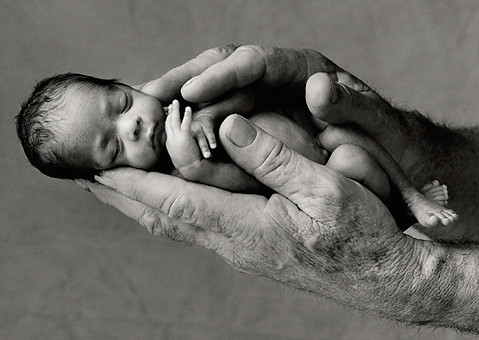Author’s Note: “After my young husband’s death, it was the loss of his physical presence that seemed intolerable. I was grateful to learn that this craving had a name in another language. Over the years, this thirst for touch somewhat lessened. But all it took to bring it back was my friend’s premature baby on my bare skin. And I believe this boy’s now almost grown body still holds the wordless feel of the warm bodies that were his first introduction to human touch.”
Hauthunger
Above a fragrant graveyard of dry leaves
a rose on a bare stem begs to be touched,
the speckled petals pooling in my palm.
And it comes to me in a rush that I’ve lost
my thirst for touch—or forgotten
the will to miss it, the way
one no longer longs for food
at a certain point in starvation.
After my husband’s death, I cried
when the dentist patted my shoulder,
when the clerk touched my hand
as she gave back my change.
In our dank basement, I wrapped myself
in a towel still warm from the dryer.
Once, to feed my sorrow, an old mentor
boiled a duck egg on the hotplate in her studio.
We ate inside a cave of stacked paintings.
Hauthunger, she said. It’s hauthunger—
that burning yearning to be touched.
Over whiskey after my mother died,
my father confessed he used to stand outside
the room listening to wails from my crib,
torn between circling me in his arms
and my mother’s theory of timed restraint.
Now, arms scrubbed from elbow to fingertip
in the shining sink outside the NICU,
I pull on a crinkling gown and sit in the humming room
where a nurse lifts my friend’s tiny boy
in a tangle of tubes and places him on my bare chest.
He settles, light as a falling leaf.
♦
Katherine J. Williams, an art therapist and clinical psychologist, was the Director of the Art Therapy Program at George Washington University, where she is now Associate Professor Emerita. Poems have been published in journals and anthologies such as Poet Lore, Passager, The Northern Virginia Review, 3rd Wednesday, Delmarva Review, The Broadkill Review, The Widows’ Handbook, How to Love the World: Poems of Gratitude and Hope, and The Wonder of Small Things, Poems of Peace and Renewal. Her first poetry collection Still Life was published in 2022. Some of her poems have been nominated for the Pushcart Prize.
She writes: “I study the creative process and make collages. In my work as a therapist I listen for rhythms, patterns, hidden bits, and am witness to something fresh when areas of darkness fall away. In collage I use scraps of handwriting, stray marks, pieces of old paintings. As a poet I search for images that, when combined, create a truth composed of newly relating parts. I feel fortunate to have lived so long with so much delight in discovery.”
Delmarva Review is a national literary journal with strong local roots in the Delmarva Peninsula. Editors cull through thousands of submissions annually to select the most compelling new poetry, fiction, and nonfiction. About half are from the Chesapeake and Delmarva region. It is available in paperback and digital editions from online booksellers and regional specialty bookstores. As a 501(c)(3) nonprofit, support comes from tax-deductible contributions and a grant from Talbot Arts with funds from the Maryland State Arts Council. Website: www.DelmarvaReview.org



darrell parsons says
Beautiful
Sheryl Southwick says
Beautiful! Thank you.
Patrick John Bushby says
Resonant on every level, devoid of pedantic sophistry; profoundly connecting our essential, inchoate humanity.
Beautiful.
Susan Baker says
Hauthunger, not only with grief in loss but also in aging.